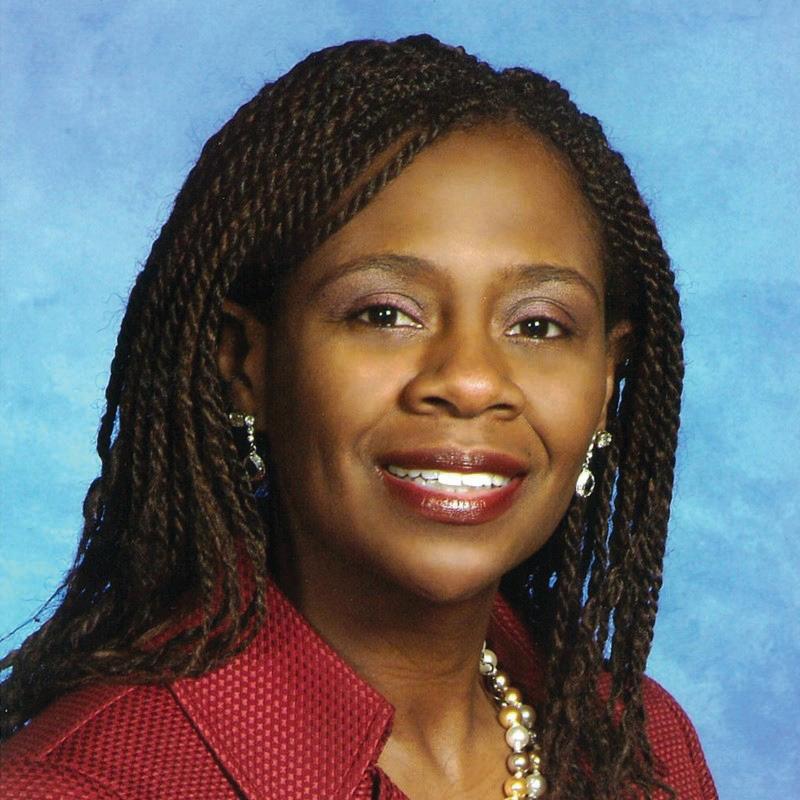
6 minute read
Successful Partners in Life as Well as a Franchise Business
by Deb Snyder
Kimble and Chris “Boz” Bosworth are out to dinner in Nashville, Tennessee, when their thriving franchise business, OnPromos Powered By Proforma, naturally comes up in conversation, and they immediately check themselves. It’s part of the delicate balance this couple has struck to be such successful partners in life as well as in business.
Advertisement
The two met as friends in college, with each seriously dating other people. Despite Chris’ advice, Kimble married her boyfriend at the time, but it ended in divorce. While in another relationship with no plans to marry again, a letter arrived in the mail from Chris wanting to reconnect. The two met for dinner and the rest is history…well, almost.
They dated for years, with Chris asking Kimble every year to marry him. Finally, one year while they were in a disagreement over their taxes, Chris prepared them both individually and as a married couple. “He said, ‘This is us fi ling jointly. I’m a $4,500 deduction; will you marry me now?’”
In the three years that followed, Chris and Kimble only saw each other a few days a week. He was working as a soccer coach during the week and on weekends (for the Olympic Development Program as well as club, high school and college teams), and she was consulting for hotels. Finally, they both landed jobs in Nashville.

The two began flipping houses on the side and were even in discussions to launch an HGTV series, but then the recession hit and everything changed. When Kimble was laid off from her job in the print/promo industry, they decided to start their own company. Kimble was fortunate to have a former boss in business development with the franchisor, Proforma.
“We needed the safety net of a franchise so it was the perfect time to go kicking and screaming into business ownership,” she says. “Proforma was such a good fit for us and really treated us like family. They were super supportive and ramped us up quickly.”

In fact, even with a non-compete in place with Kimble’s former employer, the business went from zero in October 2008 to $250,000 in its fi rst year. It doubled its revenue in the second year and hit the $1 million mark in the fourth and every year since— placing the Bosworths in the nation’s top four percent in their industry.
Part of their success comes from how they approach the business and play off one another’s strengths. With a background in sales, Kimble was natural for the customer-facing role, and Chris for back of house, including vendor relationships, sourcing and billing. But with a non-compete in place, their roles flipped at first, with Chris reaching out to all his friends and parents of students he knew from his years in the soccer community.

“He hated picking up the phone and had to get comfortable to at least say, ‘My wife Kimble will call you,” she says. “I taught him something I learned from a corporate trainer. The worst thing that can happen when you ask people if they want to do business with you is that they are nice to your face and tell you ‘No.’” So even though Chris tells people he handles the back of house, Kimble knows he was behind all their first customers.
“We work really well together because we are total opposites,” shares Kimble, who also joined the National Association of Women Business Owners (NAWBO) to surround herself with the support of other entrepreneurial women. “Whatever I’m really bad at, like numbers, Chris is great at. We always joke that Jerry McGuire stole our line ‘You complete me.’”
One of the greatest challenges they faced in growing their franchise was starting as a home-based business. At first, they were in a converted warehouse, with separation between where they lived and worked. They moved to a smaller space during the recession where Chris had his own space, and Kimble shared hers with their growing team. “It was tight, loud and difficult,” she says, “but the minute we had enough money, I relocated to an off-site office. We’ve since outgrown our space three times and just moved again.”
Today, they have a team of seven. Kimble’s learned from experience that there’s never a smooth growth curve; it’s more like stair steps. You become so busy that you need to hire, then you have a period where you have more people than business. That’s why you either bring in more business, shave costs or delegate extra to those people, which is what Kimble and Chris are faced with right now as they ramp up for a big new contract.
Like it did for all businesses, the pandemic presented other challenges. Their business was up as much as 200 percent month over month from the previous year and then March 2020 hit and sales screeched to a halt. They began exploring a possible merger at the recommendation of the franchisor. Meanwhile, the franchisor had just developed a pop-up store where branded products could be quickly loaded and sold. They took this concept to schools, sports teams, restaurants and others and built “stores” for dozens, which kept their business profitable.
The franchisor also built a great overseas relationship with a supplier of personal protection equipment (PPE). Kimble and Chris’ team were able to sell this, including medical masks, to smaller healthcare customers like nursing homes and home healthcare providers that were lacking access. “This saved us until June and then the pop-up stores from July through September,” Kimble shares. “It was itty bitty pivots—a whole bunch of them.”
They also took the opportunity this last year to refi ne their team. They let go of a few employees who couldn’t pivot and were using the pandemic as an excuse, and tapped into the large pool of qualified candidates looking for work, ultimately building a stronger team with which to move forward.

Plus, they learned even more about one another. For instance, when it came to Paycheck Protection Program (PPP) loans, Chris handled the first round seamlessly with their existing banking partner. When he hit a snag on the second round that required a different online process, he brought in Kimble, who solved the problem in an hour. “He’d never get me involved in the financial component, but knows I have this question-and-answer technique from sales where I’m able to get to the root of the problem. And I’m scarier.”
It’s all added up to a lot to talk about over dinner, of course, but the Bosworths know better. “We know when to turn work off,” she says. “It happens, but we have gotten very good at checking it”—yet another reason they’ve found so much success together.
Best Advice for Other Franchise Owners
Kimble says every opportunity you have to be in the room with other franchise owners, do it. “The most valuable thing that happens at every in-person event is I have four to fi ve other owners that I sit down with and talk about the one thing we can teach each other. It’s good to share best practices because we don’t compete with one another.”
She feels much the same way about women business owners. A member and past chapter president of NAWBO, Kimble says NAWBO is a unique, safe place of women who are facing the same challenges of growing and scaling a business. “The experience of those challenges is different for women,” she says. “That’s really valuable. The women in NAWBO are now my closest friends because my other friends didn’t understand.”









